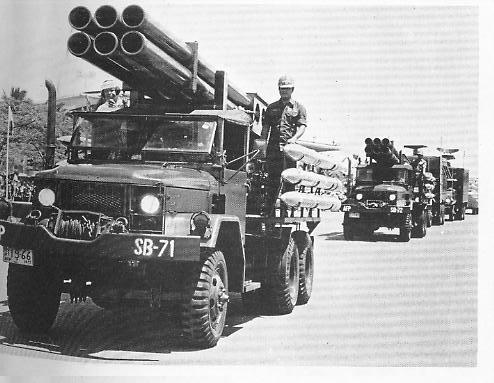Bayan Muna Rep. Neri Colmenares, who is running for the Senate in 2016, said Tuesday that the Philippines should not rely on the United States in its dispute with China over the West Philippine Sea, the country’s economic zone in the South China Sea.
“Let us rely on ourselves,” he said, according to a Rappler report. And that is a wonderful sentiment and a great goal to aspire to. His suggestion is for the Philippines to be “like Vietnam and other countries that didn’t seek [assistance, presumably] from the United States.”
He was perhaps referring to Vietnam’s Three Nos defense policy: No military alliances, no foreign military bases on Vietnamese territory, and no reliance on any country to combat others. And, there, Vietnam has us beat. Despite efforts to modernize our military, Philippine defense policy seems to be the very opposite of Vietnam’s.
But Colmenares’ suggestion holds little water considering how Colmenares and his colleagues at the Makabayan bloc at the House of Representatives and the wider umbrella group Bagong Alyansa Makabayan — Bayan — are also opposed to steps that would make the Philippines closer to Vietnam in terms of defense policy.
Vietnam, according to Global Security, which studies these things, has conscription and has had conscription since at least 1982, when it imposed “a military obligation generally of three years active duty on all able-bodied males in Vietnam.”
That was amended in 1990, when males between 18 and 25 years old were subject to compulsory or voluntary military service, “with conscription typically taking place twice annually and service obligation is 18 months.”
The amended Law on Military Service adopted in 2011 at the 7th Session of the 11th National Assembly reduced the service duration from 24 months to 18 months. This regulation results in the possible increase in the number of the youth to join the army. Those ex -servicemen constitute a powerful reserve force to supplement the regular force when needed
Colmenares’ colleagues, in contrast, want the Reserve Training Officers’ Training Corps — now replaced by the National Service Training Program where military  training is among the options — reduced even further, saying it “will be used as a weapon against students who are fighting for their rights”.
Student activists also point at alleged incidences of hazing in ROTC programs as proof that they must be scrapped.
“The continued proliferation of unexplainable violence in the ROTC fosters a culture of fear, violence and impunity in schools and universities, which are supposedly centers of free discourse, learning and progressive thought,†Kabataan party-list Rep. Terry Ridon said in 2014.
Although of serious concern as well as illegal, hazing should not mean reforms in the ROTC program, not abolition. It is a little problematic for Colmenares and his allies to call for self-reliance while also trying to undermine one of the programs that could help towards that.
Makabayan has also consistently called for a decrease in military spending, citing the risk of corruption and saying there are better things to use the money on.
“Do we really need 12 fighter jets?” former Bayan Muna Rep. Teddy Casino asked in 2012, saying poverty and not national security should take priority.
That is, of course, true. But consider the Philippines’ record $552-million proposed military budget for 2016 against Vietnam’s $2.6 billion in 2011 (and $3.3 billion in 2007). If you keep putting off spending on defense, you will eventually be forced to rely on some other nation that put money into its military for your defense and survival.
For all the ills it has brought, the Philippines’ defense agreements with the US have also brought the country surplus military equipment that is superior to having no military equipment at all.
Abstracts like “national industrialization” are great, but Colmenares and his friends have yet to present a plan for that to happen, and for the Philippines to be able to defend itself. The idea seems to be for the Philippines to make its own military equipment, something that it has tried in the past to comically tragic (or tragically comic) results.
And even the premise that Vietnam is doing it alone is faulty. It was supported by the USSR until the Soviet Union fell and maintains ties with the new Russia that emerged — it buys a majority of its military equipment there.
Vietnam was also friends with China before a maritime dispute between the two heated up again.
In 2008, “political relations have been buttressed by the regular exchange of high-level delegations, while economic ties have burgeoned. The value of two-way trade  has risen from almost nothing in 1991 to $15 billion in 2007, making China Vietnam’s largest overall trade partner (Xinhua News Agency, January 23).”
And, even, then:
Vietnam has had to contend with the problems posed by being the weaker party in an increasingly asymmetric relationship: How to accommodate a rising China, steer a middle path between hostility and dependence, and preserve the country’s political autonomy.
But at least Vietnam isn’t in bed with the imperialist US, right?
Well, in June, Vietnam and the US entered a defense agreement to “expand defense trade between our two countries, potentially including cooperation in the production of new technologies and equipment, where possible under current law and policy restrictions.”
It isn’t a military alliance in the same sense that the Philippines has with the US, certainly, but in 2014, the US and Vietnam held naval exercises.
The non-combat exercises, the fifth between the two nations, was, according to Jonathan London, assistant professor at the City University of Hong Kong’s Department of Asian and International Studies, part of Vietnam “pursuing closer relations with countries such as the US as a hedge against China, with which it also must maintain good relationships.”


3 Comments